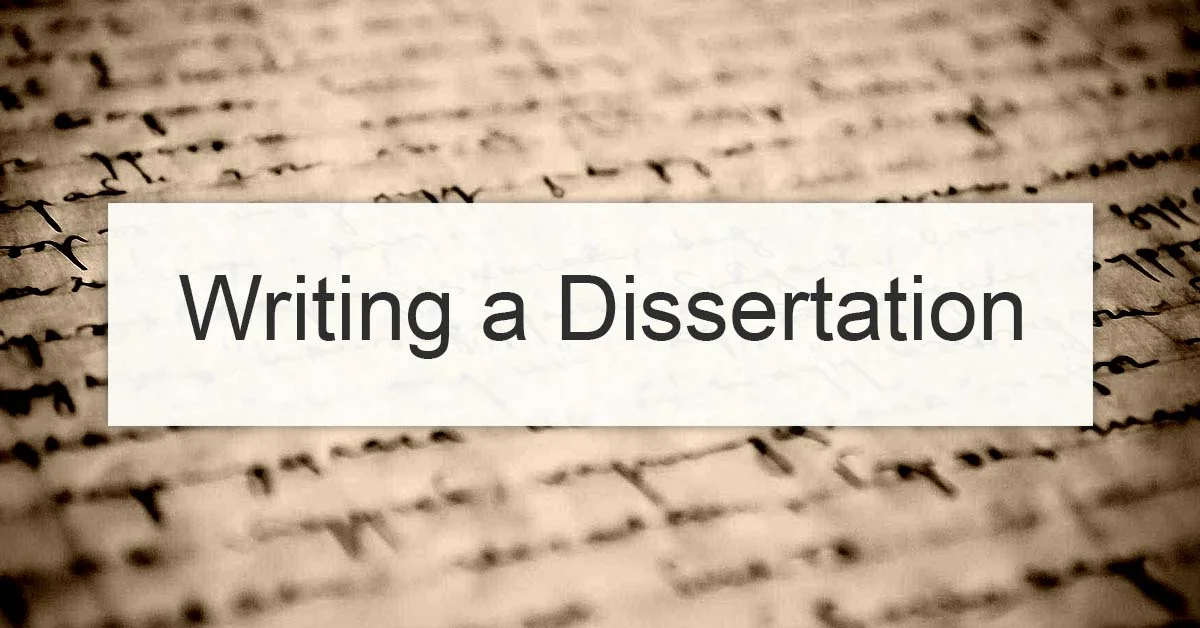Embarking on the journey of writing a dissertation is a significant academic milestone, requiring meticulous planning, dedication, and a systematic approach. A dissertation is more than a culmination of academic knowledge; it is a testament to a student’s ability to conduct independent research and contribute to their field. This article serves as a comprehensive guide, offering actionable insights and strategies on how to write a dissertation that is not only academically rigorous but also well-structured and compelling. From the inception of your research idea to the final stages of polishing your conclusion, each step is crucial in ensuring the success of your dissertation. For those seeking additional support in navigating this complex process, considering the assistance of a reputable dissertation writing service can provide valuable expertise and guidance, ensuring your work meets the highest standards of academic excellence.
Choose a Relevant and Manageable Topic
Selecting an appropriate and manageable topic is the foundational step in writing a dissertation. Choose a subject that aligns with your academic interests, addresses a research gap, and is feasible within the given time frame. Ensure that your research question is clear, specific, and capable of being explored in-depth. This initial decision will shape the entire trajectory of your dissertation, so invest time in refining your research focus.
Develop a Clear Research Proposal
Crafting a well-defined research proposal is essential for gaining approval and guiding the early stages of your dissertation. Clearly outline the research problem, objectives, research questions, and the methodology you intend to employ. This document serves as a roadmap for both you and your supervisor, providing a structured plan for the research process.
Conduct a Thorough Literature Review
A comprehensive literature review establishes the context for your research and demonstrates your understanding of existing scholarship. Identify key theories, methodologies, and findings related to your topic. Analyze and synthesize the literature, highlighting gaps or areas where your research can contribute. A well-executed literature review provides the foundation for your research rationale and methodology.
Develop a Robust Methodology
Clearly articulate your research methodology, detailing the procedures and techniques you will employ. Justify your chosen methods and discuss potential limitations. Whether qualitative or quantitative, your methodology should align with your research questions and contribute to the overall validity and reliability of your findings.
Create a Realistic Timeline
Develop a realistic and well-structured timeline for your dissertation. Break down the process into manageable tasks, considering research, writing, and revision phases. Establish milestones and deadlines to keep yourself on track. A carefully crafted timeline not only ensures progress but also mitigates stress and allows for adjustments as needed.
Organize Your Data Effectively
As you gather data, implement a robust system for organization and analysis. Clearly label and categorize data, and utilize appropriate tools or software for analysis. Whether through statistical software for quantitative data or thematic coding for qualitative data, your approach should align with your research goals.
Draft a Coherent Introduction
Your dissertation’s introduction should provide context, articulate the research problem, and outline the objectives and significance of your study. Clearly state your research question and hypothesis, preparing the reader for the journey ahead. A well-structured introduction sets the stage for the entire dissertation. As you embark on this crucial section of your dissertation, consider exploring examples and resources from leading essay writing websites. These platforms often showcase exemplary introductions and offer insights into crafting compelling opening chapters. Leveraging such resources can enhance your understanding of effective introduction strategies, contributing to the overall success of your dissertation.
Compose a Thorough Literature Review Chapter
Expand on your literature review in a dedicated chapter. Synthesize the existing research, highlighting the key debates and controversies in your field. Showcase your understanding of relevant theories and methodologies. Explicitly connect the literature to your research questions, demonstrating the gap your study aims to fill.
Present Your Methodology in Detail
Dedicate a section to explaining your chosen methodology in-depth. Discuss the rationale behind your decisions, detailing the procedures you followed. If applicable, include any tools, surveys, or experiments used. Clarity in your methodology enhances the credibility of your research.
Report Your Findings Objectively
Present your research findings with objectivity and precision. Use clear and concise language, supported by visual aids such as tables or graphs when applicable. Resist the temptation to interpret your results in this section; save that for the subsequent analysis and discussion chapters.
Engage in a Thoughtful Analysis
Devote a section to analyzing your findings, interpreting their significance in relation to your research questions. Consider any unexpected results and discuss their implications. Ensure a logical flow from your results to your interpretations, contributing to the overall coherence of your dissertation.
Craft a Nuanced Discussion and Conclusion
Your discussion chapter should critically evaluate your findings in the context of existing literature. Discuss the limitations of your study and suggest areas for future research. Conclude your dissertation with a thoughtful summary of your main findings, reaffirming their significance within the broader academic landscape.
Polish Your Writing Style
Aim for clarity and precision in your writing. Avoid unnecessary jargon, and ensure that your arguments are logically structured. Proofread your dissertation thoroughly to catch grammatical errors, typos, and formatting inconsistencies. A polished writing style enhances the professionalism of your work.
Seek Feedback from Peers and Advisors
Engage in peer review and seek feedback from your advisors throughout the writing process. External perspectives can identify areas for improvement and offer valuable insights. Addressing feedback enhances the overall quality of your dissertation and ensures it meets the expectations of your academic community.
Prepare for a Rigorous Defense
Anticipate questions and critiques during your dissertation defense. Familiarize yourself with your research, methodology, and findings. Be prepared to discuss the implications of your work and respond to inquiries with clarity and confidence. A successful defense is the culmination of your efforts and demonstrates your mastery of the subject.
Conclusion
In conclusion, writing a dissertation is a multifaceted endeavor that demands careful planning, dedication, and a systematic approach. From selecting a relevant topic to conducting thorough research and presenting findings coherently, each step contributes to the success of your dissertation. By following these comprehensive guidelines, students can navigate the dissertation journey with confidence, producing a work that not only meets academic standards but also contributes meaningfully to their field of study. Remember, a well-crafted dissertation is not just a requirement for academic completion; it is a testament to your ability to contribute valuable insights to the scholarly conversation.










